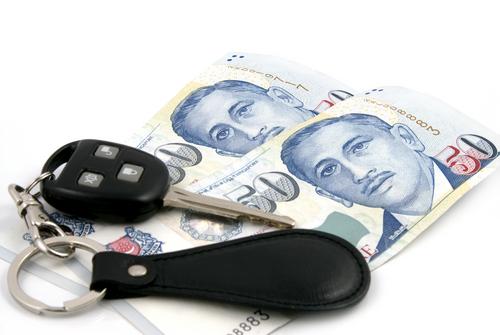
Should Singapore retain tight monetary policy even if economy skirted recession?
Growth in the third quarter could be even worse than feared, note experts.
The Monetary Authority of Singapore has kept the monetary policy unchanged as the economy yet again averted a recession while inflation is seen to remain elevated for some time.
MAS said it will retain the policy of a modest and gradual appreciation of the Singapore dollar nominal effective exchange rate (S$NEER) policy band while noting that the current policy stance is "appropriate in containing inflationary pressures and keeping the economy on a path of restructuring towards sustainable growth."
Prior to the revised second quarter figure showing 0.2% growth instead of 0.7% contraction reported earlier, most economists expected the central bank to introduce some kind of monetary easing based on assumption that the economy might have fallen into a recession in the third quarter.
Pessimism however continues to linger amidst negative economy news coming out, the latest of which was the sharp fall in trade last September. Non-oil domestic exports (NODX) dropped 4.5% YoY, in contrast to the 3.9% increase in August. Should this warrant another round of monetary policy review?
Here are views from experts interviewed by Singapore Business Review:
Lee Yoong Yoong, Research Associate, Institutue of Policy Studies
I was indeed surprised by MAS' move to keep the monetary policy unchanged. I guess this emphasized that inflation management will be a core priority in the Repuiblic's central bank's agenda, bearing in mind that inflation this year may edge past 4.5%, above the government's earlier projecting/forecast. If we factor the fact that the economy contracted 1.5% successively in the quarter 3, and that only an improved GDP figures in quarter-2 GDP helped Singapore by a hair's breadth to avoid a technical recession, the MAS' decision probably plays down a delicate financial policy tight spot, i.e. on one hand, inflation remains awkwardly sticky, but on the other, substantial disadvantage threats due to potential negative external shocks emerge.
Frances Cheung, Senior Strategist Asia ex-Japan, Fixed Income Market Research, Credit Agricole CIB
The MAS decision to maintain the slope of its SGD NEER was disappointing, given that most other central banks in the region are on the dovish side. Advance estimates of Q3 GDP contracted by -1.5% QoQ saar. The manufacturing sector bore the brunt of weak external demand, contracting by -3.9% QoQ saar, while the service sector barely grew, by +0.1%. Given high correlation between industrial production and external demand, Q4 growth is likely to continue to be weak. September NODX disappointed as well, falling by -3.4% YoY. Demand was weak in markets including the EU, US, India, Hong Kong, Malaysia, Thailand and Korea. Shipment to China rebounded somewhat to a still soft +1.8% YoY. By products, NODX was dragged by electronic products the shipment of which fell by -16.4% YoY. Trade is putting downside risk to economic growth and the latest MAS’s decision on the SGD NEER will further drag Singapore’s exports competitiveness.
The MAS continued to see the “appreciation stance of exchange rate policy since April 2010 has provided some restraint on the build-up of inflationary pressure”. But as inflation is increasingly of a domestic nature, we doubt if the SGD policy would still be effective. Sustained inflation pressure and a strong SGD could be the worst combination for exporters.
Francis Tan, Economist, United Overseas Bank
With added concerns of Singapore’s inflationary environment over the prospects of slowing growth in the upcoming months, the MAS decided to keep the monetary policy stance of “modest and gradual appreciation”, in contrast to market’s expectations of a looser policy stance that would lend support to weak economic growth. With the status quo stance, the SGD looks set to continue its appreciation against a currency basket of Singapore’s major trading partners over the next few months. I believe that keeping the monetary policy unchanged will not bring about a significantly change in the current inflationary environment and may continue to hurt near-term export volumes.
The central bank’s concerns of inflation were not unwarranted. Other than imported consumer inflation, policymakers were also concerned with asset inflation picking up speed after the latest round of quantitative easings in the developed world which would prompt cheap money to chase after higher yielding assets. The SGD and Singapore’s assets have been regarded as safe-haven assets, and are sought after by international investors amidst global economic uncertainties and low-yield environment. By increasing the price of Singapore assets through a stronger SGD, the MAS hopes to reduce investment inflows. However, I believe that as long as current global environment persists, investment inflows into Singapore will continue, further fueling asset inflation, although at a slower pace.
Moreover, recent high headline inflation numbers were largely due to domestic factors rather than imported inflation. For instance, a tight labour market and weak productivity growth would possibly drive wages up in the next few months. This may cause a wage-price spiral where higher nominal wages would chase after the same amount of goods and services, and thus driving up consumer prices. Since accommodation costs and car prices account for slightly more than half of headline inflation, the use of the exchange rate mechanism will do little to bring down inflation. The government should concurrently deploy other administrative measures to address housing, transport and labour costs.
Additionally, the central bank’s non-action will be immediately felt by Singapore-based exporters as exports become less price competitive due to a rising SGD. This does not help the already-declining export volumes seen so far this year.
























 Advertise
Advertise









